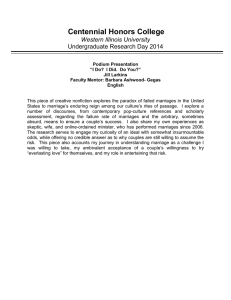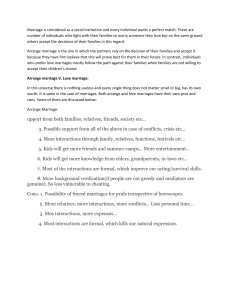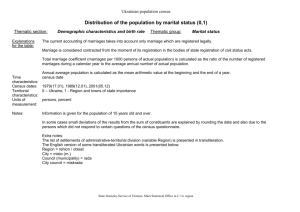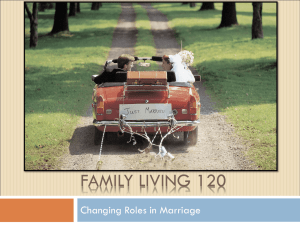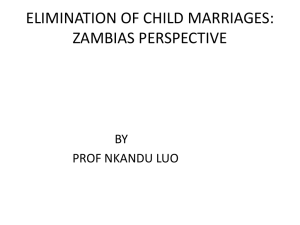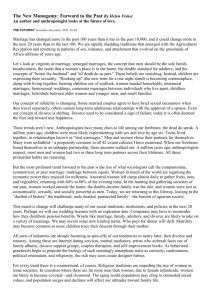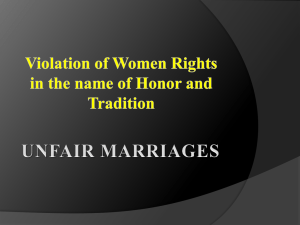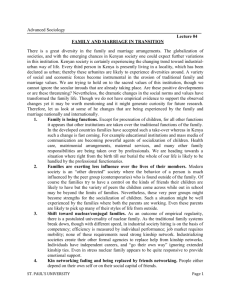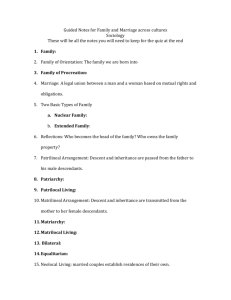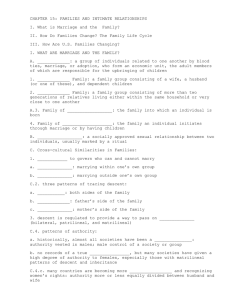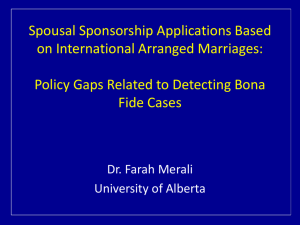Forced Marriages - Sheffield Safeguarding Children Board Child
advertisement
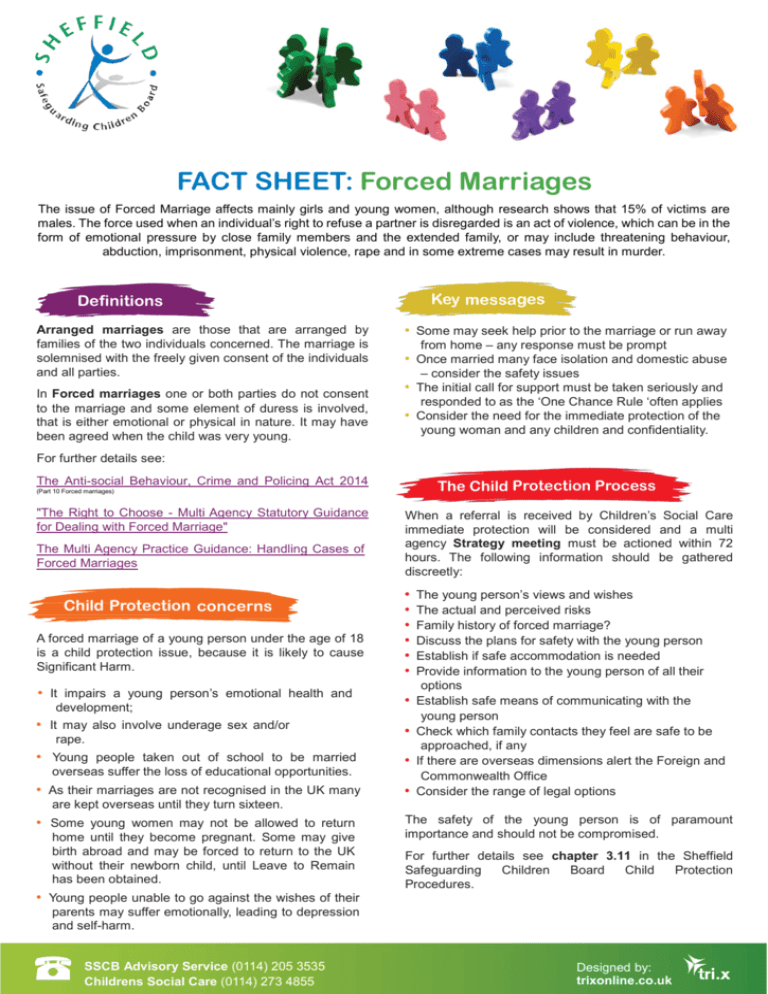
FACT SHEET: Forced Marriages The issue of Forced Marriage affects mainly girls and young women, although research shows that 15% of victims are males. The force used when an individual’s right to refuse a partner is disregarded is an act of violence, which can be in the form of emotional pressure by close family members and the extended family, or may include threatening behaviour, abduction, imprisonment, physical violence, rape and in some extreme cases may result in murder. Key messages Definitions Arranged marriages are those that are arranged by families of the two individuals concerned. The marriage is solemnised with the freely given consent of the individuals and all parties. In Forced marriages one or both parties do not consent to the marriage and some element of duress is involved, that is either emotional or physical in nature. It may have been agreed when the child was very young. • Some may seek help prior to the marriage or run away from home – any response must be prompt • Once married many face isolation and domestic abuse – consider the safety issues • The initial call for support must be taken seriously and responded to as the ‘One Chance Rule ‘often applies • Consider the need for the immediate protection of the young woman and any children and confidentiality. For further details see: The Anti-social Behaviour, Crime and Policing Act 2014 The Child Protection Process (Part 10 Forced marriages) "The Right to Choose - Multi Agency Statutory Guidance for Dealing with Forced Marriage" The Multi Agency Practice Guidance: Handling Cases of Forced Marriages Child Protection concerns A forced marriage of a young person under the age of 18 is a child protection issue, because it is likely to cause Significant Harm. • It impairs a young person’s emotional health and • development; It may also involve underage sex and/or rape. • Young people taken out of school to be married overseas suffer the loss of educational opportunities. • As their marriages are not recognised in the UK many When a referral is received by Children’s Social Care immediate protection will be considered and a multi agency Strategy meeting must be actioned within 72 hours. The following information should be gathered discreetly: • • • • • • • • • • The young person’s views and wishes The actual and perceived risks Family history of forced marriage? Discuss the plans for safety with the young person Establish if safe accommodation is needed Provide information to the young person of all their options Establish safe means of communicating with the young person Check which family contacts they feel are safe to be approached, if any If there are overseas dimensions alert the Foreign and Commonwealth Office Consider the range of legal options are kept overseas until they turn sixteen. • Some young women may not be allowed to return home until they become pregnant. Some may give birth abroad and may be forced to return to the UK without their newborn child, until Leave to Remain has been obtained. The safety of the young person is of paramount importance and should not be compromised. For further details see chapter 3.11 in the Sheffield Safeguarding Children Board Child Protection Procedures. • Young people unable to go against the wishes of their parents may suffer emotionally, leading to depression and self-harm. SSCB Advisory Service (0114) 205 3535 Childrens Social Care (0114) 273 4855 Designed by: trixonline.co.uk
